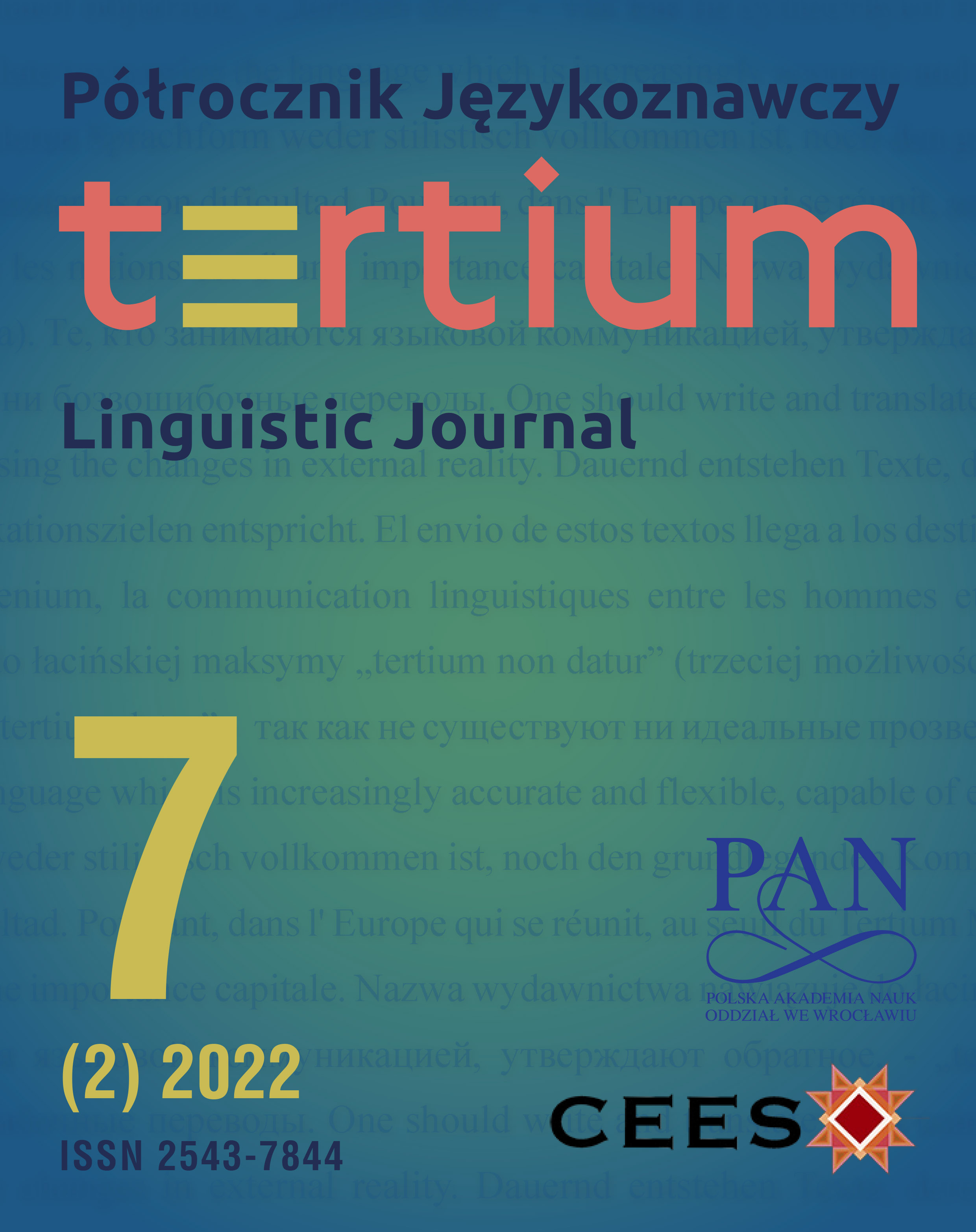Rola profesjolektu pielęgniarskiego w komunikacji zawodowej
The Role of Nurses’ Jargon in Professional Communication
Author(s): Alicja DzięciołSubject(s): Sociolinguistics, Health and medicine and law, Stylistics
Published by: Krakowskie Towarzystwo Popularyzowania Wiedzy o Komunikacji Językowej Tertium
Keywords: jargon; professional communication; lexis; nursing;
Summary/Abstract: The aim of the article is to present the various functions of the jargon of nurses. The material being the basis for the research was obtained from surveys and numerous interviews, which allowed me to examine the language awareness of nurses working in selected hospitals in the Mazowieckie voivodship (Warsaw, Mińsk Mazowiecki, Wołomin, Siedlce, Płock). The formal analysis of the jargon has shown that the vocational lexis of Polish nurses is formed by means of two types of derivation: semantic (metaphor and metonymy), e.g. pig (świnia) ‘portable device for disinfecting rooms using the fogging method’, small butterfly (motylek) ‘type of intravenous cannula’), and morphological (affix derivative, retrograde derivative), e.g. wanko ‘vancomycin’; zarurować pacjenta ‘intubate the patient’.On the basis of the professional lexical resource, it can be concluded that the most important for the studied professional group are activities strictly related to the course of treatment of patients ‘diseases, and the very specificity of individual hospital wards, equipped with characteristic medical equipment, e.g. washing machine (pralka) ‘dialysis machine’, bill of lading (list przewozowy) ‘order for additional examinations’, bocian (stork) ‘suture scissors’, odkurzacz (vacuum cleaner)‘obstetric vacuum’.Professional jargons allow for effective and efficient communication. Nurses use them to save time when communicating with colleagues at work, e.g. hepa ‘heparin’, tromba ‘thrombapheresis’, SN (Single-Needle) ‘single needle dialysis’. The professional vocabulary of the group in question also plays an expressive role, which is particularly important in medical professions associated with contact with death, in life-threatening situations, e.g. deckchair ‘lying patient’, going for parts ‘the deceased subjected to transplantation procedures’, paratrooper ’patient admitted under the urgent procedure’. Environmental vocabulary is most often used during informal conversations with colleagues and during professional activities.
Journal: Półrocznik Językoznawczy Tertium
- Issue Year: 7/2022
- Issue No: 2
- Page Range: 21-32
- Page Count: 12
- Language: Polish

